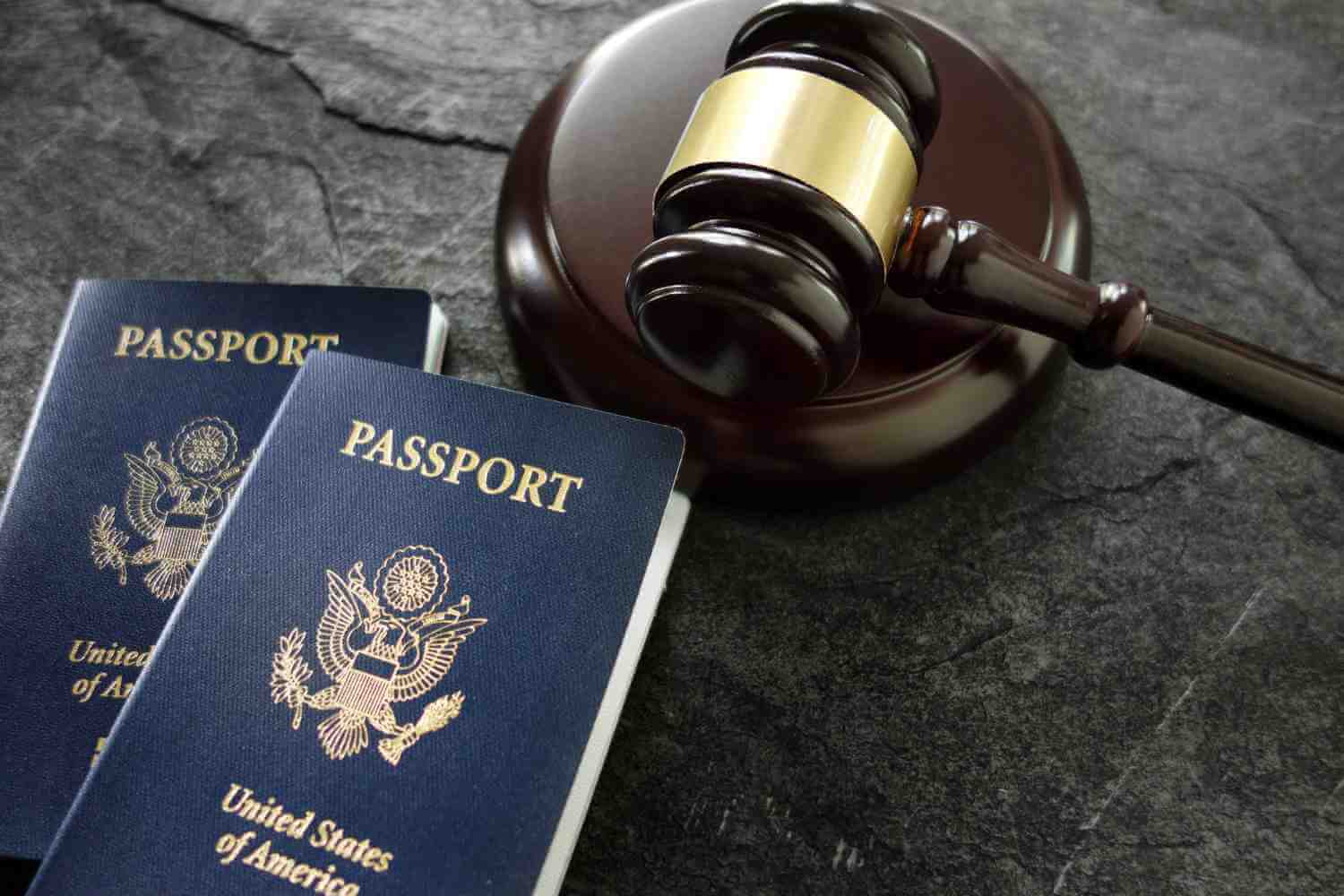
Dallas Deportation Attorney Protects You During Proceedings
Facing deportation in Texas can feel like standing on an uncertain path. The legal complexities, potential consequences, and emotional weight can all pile up quickly. However, a knowledgeable Dallas deportation attorney can act as your guide through the fog. They can help you understand your rights and protect them.
This article will walk you through the deportation process, outline your rights, and explore common defenses. Most importantly, it shows how an experienced deportation lawyer can help you utilize your rights effectively throughout the process.

Overview Of The Deportation Process
Understanding the legal process is essential for anyone facing removal. It involves multiple hearings and opportunities to present a defense. At every stage, you have different rights that protect you. This highlights why preparation and hiring legal support are critical.
Step 1: Receiving The Notice To Appear (NTA)
Deportation begins when the government issues a Notice to Appear (NTA). This document informs you that the government intends to deport you. It also provides information about when and where your immigration hearing will happen.
The NTA must contain specific information about the charges against you. It can be overstaying a Visa, entering the U.S. illegally, or committing a crime. It is essential to review the notice carefully to ensure all information is accurate, as errors could impact your case.
Step 2 – The Master Calendar Hearing
At the Master Calendar Hearing, you meet with an immigration judge who will review the charges and set the date for your Individual Hearing. This hearing is often brief and primarily procedural. You’ll enter a plea—either admitting or denying the charges—and the judge may decide whether you are eligible for bond or detention.
Step 3 – The Individual Hearing
The Individual Hearing is the most important part of the deportation process. At this hearing, you can present your case and defend against deportation. Your attorney can present evidence, call witnesses, and argue why you should not be deported. If you are seeking relief, you must provide proof that you meet the requirements for the defenses.
Step 4 – The Judge’s Decision
After the Individual Hearing, the judge will either issue a decision immediately or take some time to review the case. The possible outcomes include deportation, granting relief, or postponing the decision.
Step 5 – Appealing The Decision
If you are ordered deported, you have the right to appeal to the Board of Immigration Appeals (BIA). An appeal must be filed within 30 days of the decision. This process can provide another chance to stay in the U.S., but it requires solid legal grounds and an attorney’s services.
Throughout this process, you must be aware of your rights and utilize them to ensure you have a chance to present your case. Knowing and asserting your options can make a significant difference in the result. These rights protect you and your future, so be sure to utilize them properly.
Understanding Immigration Rights
As an immigrant facing deportation, you have certain legal rights, many of which are protected by the U.S. Constitution. They ensure that you are treated properly throughout the legal process and that your case is heard impartially. You must be aware of these rights to take the necessary steps and protect your future in the country.
Right To Due Process
The Fifth Amendment guarantees all individuals, including immigrants, the right to due process. This means you have the right to a just hearing and the right to be informed about the charges against you. The government cannot remove you without allowing you to contest the allegations and present a defense.
Right To Legal Counsel
You have the right to be represented by a lawyer during your deportation proceedings. Although the government does not provide free legal representation, you may hire a private attorney to represent you. Legal counsel is critical to ensuring your case is handled properly, and your rights are protected.
Right To Appeal
If the immigration judge orders your deportation, you have the right to appeal the decision to the Board of Immigration Appeals (BIA). The BIA is a panel of immigration judges who will review the case. If they find an error in the law or facts, they can overturn the deportation order.
Right To A Hearing Before An Immigration Judge
You are entitled to have your case heard by an immigration judge in a court of law. This hearing is an essential part of the deportation process, as it allows you to challenge the charges against you and present arguments for why you should not be deported.
Effectively utilizing these rights during your deportation proceedings is essential to ensuring due process and protecting your future. Having an experienced immigration attorney by your side can help you navigate the complexities of the legal system. They present a strong defense and ensure that your constitutional rights are upheld.
Common Defenses That Ensure Your Rights Are Protected
There are several defenses that you may be eligible to use to prevent deportation. Each defense has specific eligibility criteria and requires thorough documentation. So, having legal representation ensures that you present a strong possible argument.
Asylum
If you are facing persecution in your home country, you may apply for asylum. Asylum can be granted if you can prove that you have a well-founded fear of persecution due to factors such as race, religion, nationality, membership in a particular social group, or political opinion.
You must file for asylum within one year of your arrival in the U.S. unless you can prove that circumstances have changed since then. Moreover, it is important to gather relevant evidence to strengthen your case and demonstrate the credibility of your fear. It can include documentation of threats or incidents in your home country.
Cancellation Of Removal
This can be a viable defense for immigrants who live in the country for an extended period and have strong family ties. To qualify, you generally need to have been in the U.S. for at least 10 years. You must also have no serious criminal convictions. Lastly, you must demonstrate your removal would result in an extremely unusual hardship to a U.S. citizen or lawful permanent resident.
Adjustment Of Status
In some cases, applying for an adjustment of status can help you avoid deportation. If you are eligible to adjust to permanent resident status, this can prevent deportation and allow you to stay in the U.S. legally. Eligibility includes adjustments through a family petition or employer sponsorship.
You must submit your application to the U.S. Citizenship and Immigration Services (USCIS) before your deportation hearing. It is essential to ensure that all required documentation is submitted with your application. It includes proof of your relationship to a sponsoring family member or your employment status.
Waivers Of Inadmissibility
Certain grounds for deportation can be waived through a waiver of inadmissibility. This option may apply if you have committed minor offenses or violated immigration laws in the past. A waiver can be granted if you can demonstrate that your removal would cause significant hardship to a U.S. citizen or lawful permanent resident.
Hiring an attorney ensures these defenses are properly utilized. They will gather evidence, meet deadlines, and present your case effectively to maximize your chances of preventing deportation. An attorney’s service is crucial in navigating the legal complexities and ensuring a favorable result.
Exploring What An Attorney Can Do for You
An experienced Dallas deportation lawyer plays a critical role in defending your rights and navigating the complex legal system. An attorney’s expertise ensures that your case is handled with the utmost care and precision, increasing your chances of a successful outcome.
Evaluating Your Case & Identifying Defenses
A skilled deportation lawyer will thoroughly review your case and identify potential defenses. They will assess whether you qualify for asylum, cancellation of removal, or other forms of relief that could prevent deportation. They’ll also review your criminal record and immigration history to determine the best course of action.
Representing You In Immigration Court
A deportation lawyer represents you during your immigration hearings. They will present your case, introduce evidence, and make legal arguments to support your defense. Having an attorney by your side ensures that your case is presented effectively and that your rights are safeguarded throughout the process.
Filing Appeals & Motions
If deportation is ordered, a lawyer will file appeals on your behalf. This includes submitting a Notice of Appeal to the BIA and representing you in any hearings. A lawyer can also file motions to reopen or reconsider a case, which could provide another opportunity to present new evidence or legal arguments.
Negotiating With Immigration Authorities
In some cases, deportation can be avoided through negotiation. A deportation lawyer can engage with immigration authorities to explore alternatives to removal, such as voluntary departure, deferred action, or the possibility of securing a stay of removal while your appeal is pending.
Selecting the right attorney can make all the difference. Consider their experience, track record, and familiarity with deportation defense to ensure your case is in capable hands. With the right lawyer, you can navigate the complexities of the legal process and protect your future in the U.S.
Dallas Immigration Lawyers Is Your Legal Advocate
At Dallas Immigration Lawyers, we understand how daunting the deportation process can be, and we are committed to protecting your rights. Our team of experienced immigration attorneys specializes in deportation defense and can guide you through every step of the process.

We take a personalized approach to each case, developing customized defense strategies based on the unique facts and circumstances surrounding your situation. Our goal is to maximize your chances of staying in the U.S.
With extensive experience in Dallas immigration courts, we are familiar with the local legal system and how to navigate it effectively. Our attorneys are well-equipped to handle cases in the Dallas area and beyond.
We provide a wide range of legal services, from evaluating your eligibility for various forms of relief to representing you in hearings and filing appeals. We handle every aspect of your case to give you the best chance of success.
Facing deportation can be overwhelming, but understanding your rights and the legal process is essential for protection. You have the right to due process, legal counsel, and the opportunity to appeal deportation decisions. Common defenses like asylum, cancellation of removal, and adjustment of status can help prevent deportation.
An experienced deportation attorney is essential in evaluating your case, representing you in court, and filing appeals. Dallas Immigration Lawyers is dedicated to guiding clients through every stage of the deportation process. We ensure your rights are protected, and your chances for relief are maximized.
Share this article




